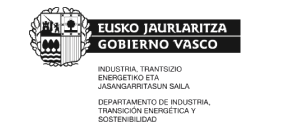16 November 2015

Mari Jose Aranguren and Mikel Navarro addressed the Committee on Economic Development and Competitiveness of the Basque Parliament yesterday to highlight the need to promote formula to boost the competitiveness of small businesses – those most affected by the crisis and with significant weaknesses if compared to their counterparts in reference countries like Germany. In their talk, they stressed the need to draw up ad hoc policies to start non-technological innovation processes aimed at productive transformation.
These reflections took place as part of the presentation of the "Basque Country Competitiveness Report 2015. Productive Transformation in Practice", before members of parliament from PNV, Bildu, PSOE and PP.
In this context, both emphasised the fact that, although the outlook for global economic growth have become gloomier and there are significant uncertainties about the future, the Basque Country starts from a favourable position after several years of adjustment.
During their over two-hour talk, Orkestra's researchers scanned the social and economic context in the Basque Country. They referred to the existence of a dual economy where, despite the positive indicators of business behaviour and evolution, there are still other worrying aspects: in addition to the competitiveness problems facing small businesses, unemployment rates remain high and there are increased inequalities and many disadvantaged social groups.
To avoid increasing the gap between these two situations, Mari Jose Aranguren and Mikel Navarro made a series of recommendations regarding those policies that could help these groups in situations at risk to emerge from the crisis. Thus, they pointed at the need to promote a strategy geared towards improving the competitiveness of small businesses and moving forward on social and public sector innovation.
Mari Jose Aranguren highlighted that the new Smart Specialisation Strategies (RIS3), which are the current initiative promoted by the Basque Country, call for other governance models. The focus of innovation should be on the way in which the administration relates to other stakeholders (that is, social innovation) and to the organisational structure (public innovation). After having implemented the processes affecting RIS3 and the reorganisation of the Basque Science, Technology and Innovation Network, this should probably be the next great challenge.
In addition, Aranguren talked about the need to foster innovation related to non-technological sectors and small businesses, and to work on a change in the business mindset, understood as workers' collective project and breaking the employer-employee clichés.
She also noted the importance of strengthening intermediate stakeholders or knowledge-generating agents that are close to small businesses, such as vocational training centres, by integrating them in policy design and structure to support business competitiveness, local development agencies and regional structures, which should be integrated in the multi-level governance structure required in the Basque Country.
In his presentation, Mikel Navarro stressed the need to implement public policies evaluation systems: both regarding R+D+i and investments in physical infrastructure and, more generally, the assessment of various tax incentives.
In this regard, he also addressed the importance of seeking new financing instruments to drive innovation. Navarro talked about seeking ways to verticalise ICTs so that instead of having general ICT businesses, they can specialise in specific markets such as healthcare, cities, etc., which would be particularly useful for Basque businesses to incorporate 4.0 industry elements both regarding processes and products.
This research, which was positively assessed by the attending parliamentarians, can be read here.
The full presentation is also available here.












